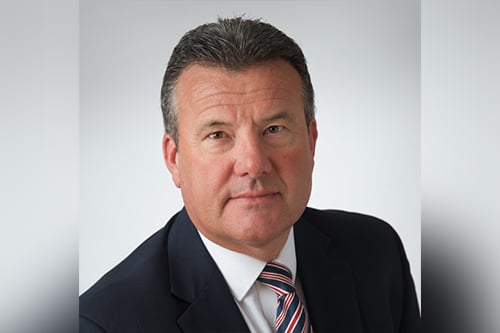

Operations director for Criterion Adjusters, Mark Pierce (pictured), has been a loss adjuster since 1984 and throughout his career has, by his own admission, worn just about every hat that there is to be worn within the industry. Having been involved with the high net worth (HNW) sector for the last eight years, Pierce has a great overview of the area and recently spoke with Insurance Business to discuss how brokers working in this space can develop a proposition which makes them invaluable to their clients.
What he likes most working in the HNW sector, Pierce outlined, is that it values a lot of the things that first attracted him to the insurance industry. It emphasises a personal approach and face-to-face engagement, he said, and embodies many of the great traditional aspects of loss adjusting. What is fascinating to note about the sector also, he highlighted, is how it has evolved over the years.
“Instead of saying ‘this is what we do, and this is how we do it’,” he said, “we’ve tried to increase the options and the choices that our customers, our policyholders, our clients and even our staff have, and have broadened these to give them a bigger toolkit and offer them new opportunities and methods when it comes to dealing with claims.”
Looking at how the sector has evolved, Pierce noted that, over time, as more insurers have become involved in the HNW space, it has moved into almost subsidiary sectors and divided into ‘ultra-high-net worth’ and ‘mid-net worth’. The latter of these includes individuals who want something better than a traditional insurance policy and are prepared to pay more but would not ordinarily have been classified as HNW, he said, and the recent hardening of the market is making it difficult for insurers to make money here due to higher claims ratios. However, in what is now considered the ultra HNW sector, he said, there is still a chance for real profitability for insurers that underwrite and compete properly with each other.
The HNW is a very attractive market for brokers, Pierce said, outlining how a broker that provides services for a client around their business will often receive the domestic HNW insurance policies of that client also.
“We see a lot of that ‘all-round commercial offering’ by brokers,” he said. “And I think that’s a good thing. I think it is a good thing for the customer as they have a one-stop shop whether they have a problem with a van at work or their own vehicle. The broker has a very good working knowledge of that client and there are many relationships out there like that.”
HNW does not lend itself particularly well to online platforms due to the high level of Q&A needed to place the cover correctly, Pierce said, and so some individuals will just place their personal insurance with a broker who comes recommended to them. These relationships are often built through personal friendships, or club memberships, he noted, as people recognise the professional expertise of a broker in this complex area.
“There are insurers out there who offer high net worth products that you can purchase on the internet, but they come with challenges,” he said. “Because you’re essentially relying on the insured filling out the proposal correctly. Have they got the contents sum insured right? Have they got the building sum insured right? Because if they get them wrong, then that creates all sorts of problems in respects of any potential claim.”
For brokers looking to develop a value proposition that will allow them to access this unique market, Pierce believes that the capacity to be all things to all men is a strength that they must develop to succeed in this area. Brokers must be able and willing to offer a multitude of services, he said, and even to extend these into the position of being a de facto independent financial advisor, looking after pensions and investments. Beyond offering a variety of services, he said, brokers must understand their customers and their specific needs to be successful in this space.
“Purely from my perspective as a loss adjuster, we enjoy brokers being part of the claims process,” he said. “Mostly because they speak an insurance language that we speak, there’s terminology that we would both use, that many policyholders may not understand. Brokers can act as a fantastic lubricant for the machinery of a claim to get to a conclusion quickly and efficiently and to the satisfaction of all.”
Some brokers have claims departments which is great, he said, but though smaller brokers may not have this they still have a good working knowledge of claims. Where there are challenges to be found in the sector, he said, is the cases when brokers sell a policy, accept their commission and then do not support their client in respect of a claim. He finds such situations personally frustrating, Mark said, as he knows that if he were in the shoes of such a customer and paying a sizable premium and commission, he would expect a degree of service.
“I have to say that this is the exception and not the rule,” he said, “but it is an exception that the broking community would do well and try to eradicate.”
